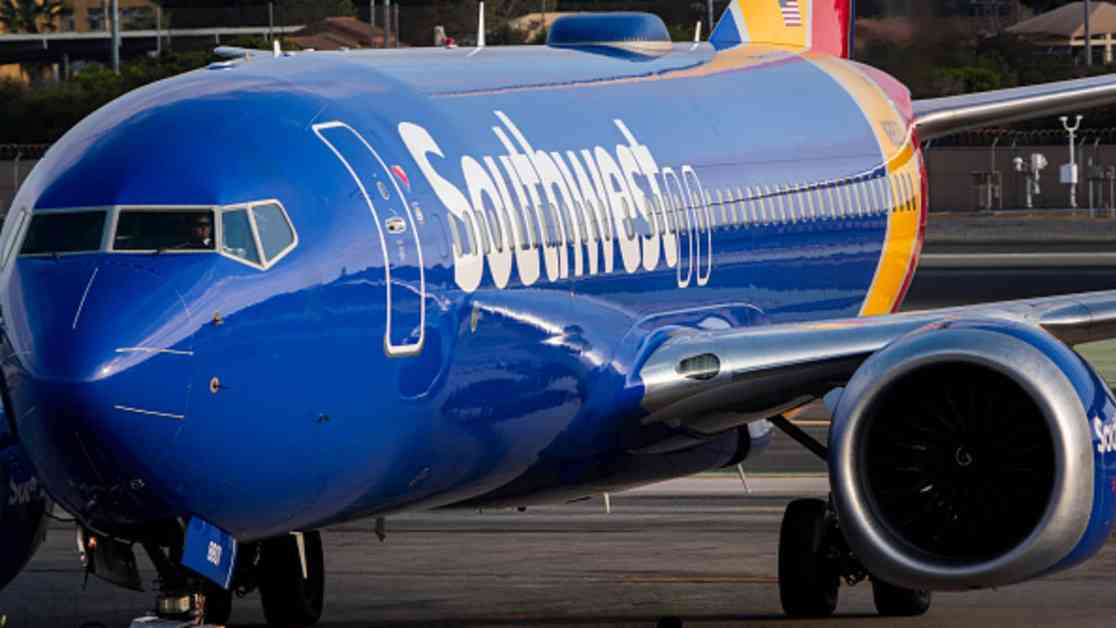Southwest Airlines, a longtime favorite among travelers for its “two bags fly free” policy, made a surprising announcement on Tuesday that is set to change the way customers view the airline. This $300 million gamble will see the airline charging customers to check their luggage, a move that was once thought to be unthinkable. The decision to introduce baggage fees is part of a broader strategy to revamp the carrier’s customer perks and policies, which have long set it apart from competitors in the industry.
What You Need to Know
Under the new policy, travelers purchasing any ticket below Southwest’s Business Select fare will incur fees for checked baggage. On the other hand, customers opting for the Business Select ticket will still be allowed to check two bags for free. Additionally, top-tier A-List Preferred frequent flyer program members and those with Southwest credit cards will also receive free checked bags as part of their benefits.
While Southwest has not revealed the exact cost of checking a bag, it is interesting to note that competitors like Delta, United, and American charge starting from $35 per bag. The new baggage fees will go into effect for tickets purchased on or after May 28.
Moreover, the introduction of basic economy tickets by Southwest will come with restrictions that do not allow for free changes. Despite these changes, carry-on bag policies remain unchanged, ensuring that all ticket holders, including those with basic economy fares, will continue to receive a free carry-on bag.
Adapting to Change
As with any major policy shift, Southwest expects that customers may opt to carry on more luggage rather than pay for checked bags. In response to this, the airline is taking proactive measures to streamline the boarding process. By equipping gate agents with mobile bag-tag printers and introducing new carry-on size guides, Southwest aims to maintain efficiency and minimize disruptions caused by increased carry-on luggage.
However, the increased volume of carry-on bags may lead to longer queues and transaction times at airport counters. In anticipation of this, Southwest plans to redistribute staff and provide mobile printers to facilitate payments for checked bags. These operational adjustments demonstrate the airline’s commitment to ensuring a seamless travel experience for all passengers.
Driving Revenue and Innovation
The decision to implement baggage fees and introduce basic economy tickets reflects Southwest’s ongoing efforts to increase revenue and enhance its competitive position in the market. Under pressure from activist investors to improve returns, the airline is exploring new avenues for growth while maintaining its core values.
In addition to these policy changes, Southwest is set to launch a range of new offerings, including assigned seating and seats with extra legroom, to cater to evolving customer preferences. CEO Bob Jordan is optimistic that these changes will not only drive sign-ups for the airline’s co-branded credit card but also attract a wider customer base through new ticket-selling channels.
Furthermore, Southwest passengers can now earn Rapid Rewards frequent flyer miles based on their ticket purchase price, a departure from the previous model. Redemption rates will be determined by flight demand, aligning Southwest with industry standards while offering customers more flexibility in redeeming their miles.
In conclusion, Southwest Airlines’ decision to introduce baggage fees and revamp its customer policies marks a significant shift in the airline industry. By adapting to changing market dynamics and customer needs, Southwest is positioning itself for long-term success and continued growth in an increasingly competitive landscape.



















